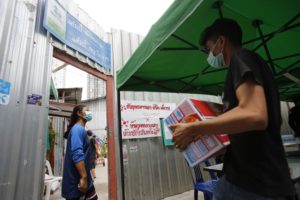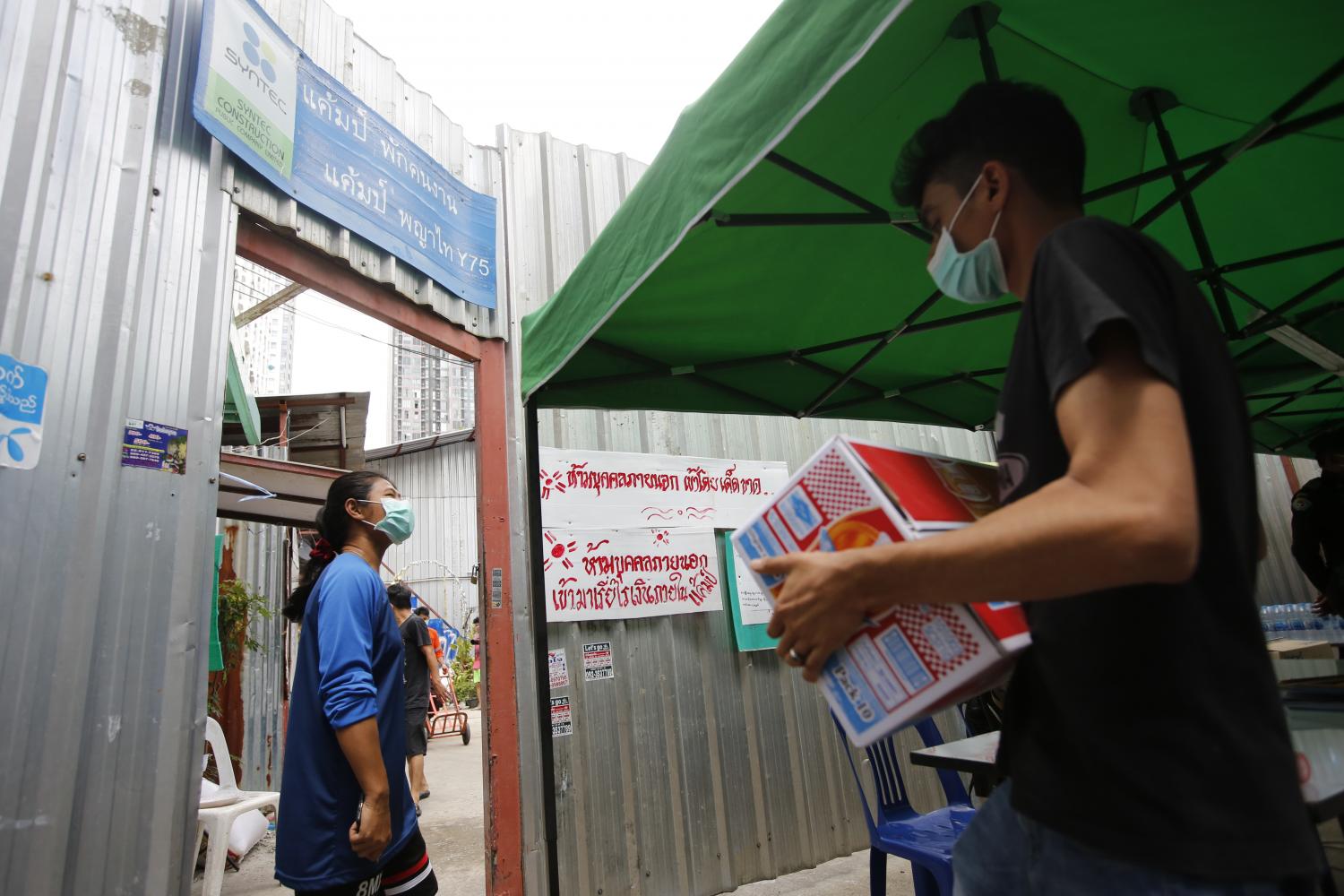
Thailand’s 30-day closing and lockdown of construction worker camps needs a rethink
On June 27, the government announced that accommodation for workers both inside and outside of construction sites, transformation sites or demolition sites would be temporarily closed, while movement of workers would be prohibited temporarily for at least 30 days. The government reacted quickly in response to the growing number of clusters of Covid-19 cases. However, the government should also realise that closing down camp sites alone may not be able to help contain the virus unless there are measures to properly address the movement and health of migrant workers as follows.
First and foremost, the government need to rethink compensation. On June 29, the government stated that it would provide help to workers, both Thais and migrants, under the social security system where they would receive 50% of their monthly wage but no more than 7,500 baht. According to the Foreign Workers Administration Office, as of May 2021, there were approximately 2.3 million migrant workers with permits to work in Thailand. Of these 405,261 were migrant workers in the construction sector. However, according to the latest statistics on social security in 2019, there were only 172,897 migrant workers in the construction sector who were insured under the social security scheme. This means that more than half of migrant workers in the construction sector will not receive compensation.
Migrant workers in the construction sector are usually paid on a daily basis, and with the construction sites being closed, they have no income to buy food and other necessities. This may prompts them to leave the construction sites and find employment elsewhere, turning them into illegal workers. Even those who are entitled to the 50% wage compensation might also be tempted to find another job that pays them a 100% wage. This will later hinder the ability of government to trace them, as migrant workers will not come to officials and will try to avoid prosecution. Years of efforts to bring migrant workers into the system might be thwarted.
This brings us to the second suggestion, rethinking camp closures in a one-size-fits-all manner. Construction camps with worker accommodation on-site should be able to continue their operation, provided that these sites are equipped with enough healthy food to maintain workers’ health, medical treatment and quarantine, as well as sleeping and living areas that are conducive to social and physical distancing. Authorities may audit these sites regularly and grant approval certificate if they are up to standard.
Construction camps with worker accommodation situated in other locations, such as local communities, also need additional monitoring and movement restriction measures. Examples are QR code tracking, and transport to and from construction sites, making sure that workers will not encounter members of local communities. Contractors should keep the authorities informed about daily operations. This practice, known the as “Bubble & Seal” model, was used in Samut Sakhon province during the previous cluster outbreak among factory workers. It would be useful to extract lessons from this model and apply them to construction camps.
Third, rethink about well-being of workers in the camp sites, ensuring that workers will not be forced to run away. Many migrant workers in the construction sector migrate with their families to Thailand or start their families as they settled. Being locked in their on-site or off-site accommodation which are known to be congested, unhygienic and unsafe, is not a condition anyone would wish to be in, let alone having their children experience such conditions. According to the figures by The Centre for Covid-19 Situation Administration or CCSA, 48,000 migrant workers are in 585 construction camp sites in Bangkok alone and of these, according to UNICEF, around 13,000 are migrant children. Their needs for nutrition, development, and protection must be addressed.
Fourth, rethink about domestic violence. Being locked down in the accommodation means that victims of violence are now in a more vulnerable position. According to the report on Support to Children Living in Construction Site Camps by UNICEF, it was found that more than 40% of mothers reported experiencing some form of verbal/psychological abuse or physical violence, and almost 90% of children participants reported experiencing some form of physical violence from their parents or guardians. These groups of women and children in the construction camps must not be left behind to suffer in silence, or be compelled to run away elsewhere. The government and employers could work together to identify their needs and response to them. Working in tandem with civil society organizations and migrant networks can also build up trust among the survivors.
Fifth, rethink about communication with migrant workers. It is widely known that migrant workers do not have much trust on officials, afraid that they might be captured for repatriation, or exploited in many possible ways, or both. Any laws, policies, and measures concerning migrant workers must be accessible both in terms of languages and mode of communication. In this age of information technology, information can spread quickly, so does fake news. Partnering with networks of migrant workers as well as the employers to help distributing the information can be helpful.
Boonwara Sumano, PhD, is a senior research fellow at the Thailand Development Research Institute (TDRI) and N Aneksomboonphon is an independent contributor. Policy analyses from TDRI appear in the Bangkok Post on alternate Wednesdays.
Source: https://www.bangkokpost.com/opinion/opinion/2144651/closing-worker-camps-needs-a-rethink



